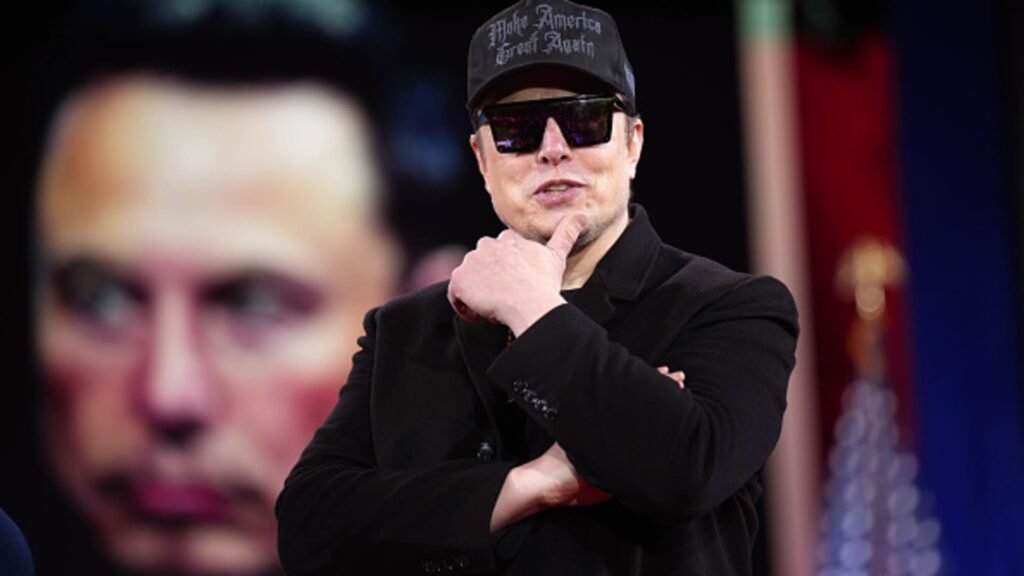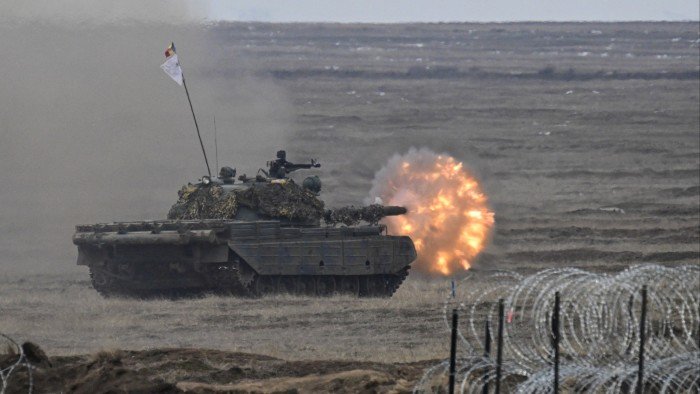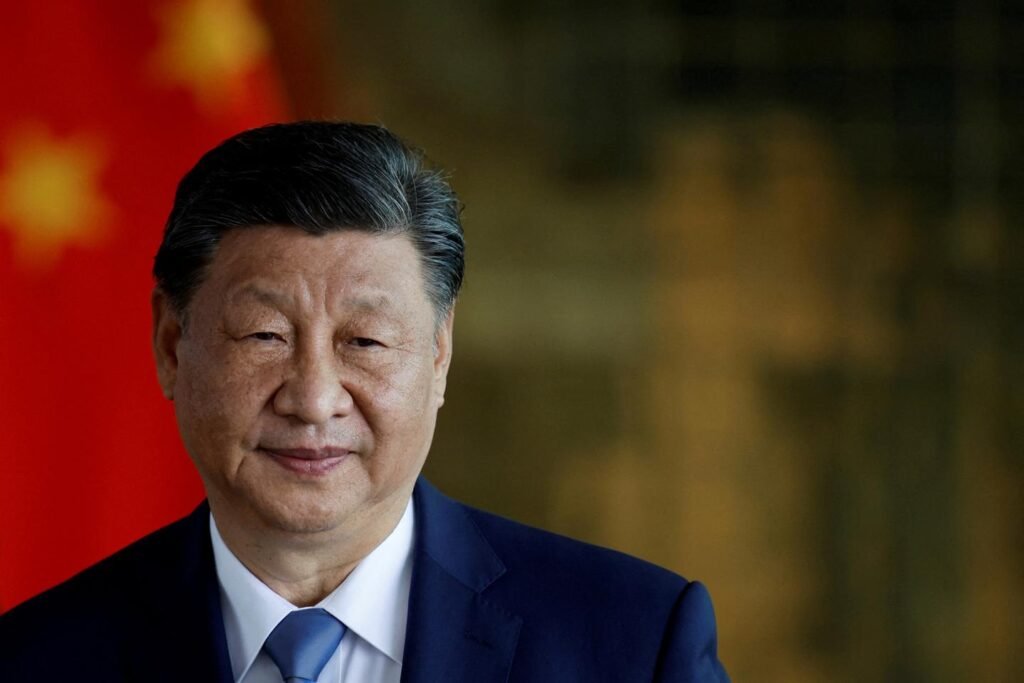No matter how many times Donald Trump openly parrots the Kremlin line, it’s never not going to sound wrong coming from the President of the United States. In 2018, at a press conference in Helsinki, Trump announced that he accepted Vladimir Putin’s claim that Russia did not intervene in American elections, despite our own intelligence agencies’ conclusion to the contrary. I watched the scene sitting outside in the glaring Finnish summer sun on a CNN set, with Anderson Cooper, who, after a short, stunned silence, concluded, “You have been watching perhaps one of the most disgraceful performances by an American President.” Later, Fiona Hill, the National Security Council senior director who had staffed Trump at the summit, would recall what it felt like inside the room when she heard Trump’s words: she thought about faking an illness, pulling a fire alarm, anything to stop him from talking.
On Tuesday afternoon, a few hours after his foreign-policy team met in Riyadh with Russian officials to discuss how to end the war in Ukraine, the President had what can only be described as another Helsinki moment. Holding forth at a press conference at Mar-a-Lago about why he had refused to include the Ukrainians in the Saudi meeting, Trump said that there was no reason to have done so, since Russia’s invasion, three years ago this week, was actually Ukraine’s fault. “You should never have started it,” he said, addressing Ukraine’s President, Volodymyr Zelensky. “You could have made a deal.” To hear Trump tell it, Ukraine might as well be bombing its own cities and killing its own citizens. He claimed that the United States had spent three hundred and fifty billion dollars helping Ukraine, and that Zelensky’s popularity had plummeted to just four per cent in recent polls—both statements so far divorced from reality that Putin himself might not have been brazen enough to make them.
By Wednesday, Zelensky pushed back on Trump’s ridiculous assertions by saying that he was living in a Russian-made “disinformation space,” and, in response, Trump attacked the Ukrainian leader as a “Dictator without Elections” in a long, falsehood-riddled social-media post. His officials, meanwhile, have made clear in the course of the last week that Trump’s pro-Kremlin rhetoric is more than just empty words; he appears ready to concede to Russia on most of its major demands for a peace deal, including pledging that Ukraine will never join NATO, not allowing U.S. troops to participate in providing security for Ukraine after a ceasefire, pressuring Ukraine to cede illegally occupied territory to Russia, and lifting Western sanctions imposed on Russia. Trump’s embrace of America’s adversary and rejection of its ally has been so swift and complete that even top Kremlin officials are astonished. “If you’d told me just three months ago that these were the words of the US president, I would have laughed out loud,” the former Russian President Dmitry Medvedev posted on X.
That all this has taken place exactly one month into his second term seems fitting, however, for an American President who’s never made much secret of his inexplicable desire to suck up to Putin. One difference from Trump’s first four years in office, though, is that he has now adopted not only a pro-Putin take on Russia’s conflict with Ukraine but an approach to foreign policy over all which echoes Putin’s throwback view of the world, as a playground for predatory great powers to exert nearly unlimited control over the smaller nations that fall within their sphere of influence. How else to explain Trump’s initial moves on the world stage since returning to office, as he threatened to outright seize territory in the Western Hemisphere, from Canada to Greenland and Panama? Surely he has been emboldened by Putin’s illegal annexation of Crimea in 2014—and one of many concessions Trump will now press on Ukraine is to admit that this territory has been lost to Russia forever. Trump’s second Inaugural Address, in stark contrast to his first, even resurrected the nineteenth-century term “manifest destiny,” invoking the idea of American expansionism as a divine right that should extend not only to making Canada the “fifty-first state,” as Trump has taken to calling it, but all the way to the planet Mars.
Trump’s overt endorsement of a pro-Putin foreign policy has, understandably, shaken the world in the last few days. Just as jarring, in my view, has been Trump’s embrace of Putin-like tactics at home, a hallmark of his return to power which has unfolded with a speed and ferocity far different than what Trump was able to pull off in his first term. Call it the Putinization of America.
A quarter-century ago, as a young foreign correspondent for the Washington Post based in Moscow, I reported on Putin’s takeover of Russia, a process of crushing the country’s nascent, flawed democracy. Targets included any possible rival power centers that did not owe their authority to Putin, from independent media and wealthy oligarchs to elected governors. Within a few years, the Kremlin had dismantled or defanged them all. At the same time, Putin empowered former K.G.B. colleagues from the security services, who created a modern-day dictatorship for him from their stronghold in what Russians call the “power ministries.”
This playbook is the same one being followed now by Trump. It’s important to be clear-eyed about this. I don’t know where it will end, or how far Trump will take it. America, thank goodness, is still a vastly different country from Russia, with a long tradition of democratic freedoms, decentralized power in the states, and constitutional governance. But tally up the damage from one month, and it is considerable. And no, I’m not just talking about ominous theatrics like Trump openly musing about staying in office for an unconstitutional third term or, just one day ago, proclaiming himself a “king” on social media and having his White House circulate a fake image of him wearing a crown on the cover of a Time-like magazine.
Washington today echoes with so many uncomfortable reminders of that transitional moment in Moscow—the sudden, fearful silence of critics who had previously spoken out, the business tycoons rushing to kiss the President’s ring, the lying and reality distortions to fit the official narrative. Trump’s consolidation of power this time has been fast and consequential. In a slew of executive orders, he has asserted the right to unilaterally revoke the Constitution’s guarantee of birthright citizenship, cancel billions of dollars in federal funding, and assume executive control over independent federal agencies. He has empowered the world’s richest man to fire tens of thousands of government employees and eliminate long-established, statutorily authorized programs, ranging from America’s famed Epidemic Intelligence Service to its entire foreign-aid program. Although some of the cuts are being fought in the courts, the G.O.P.-controlled Congress has allowed this unprecedented usurpation of its prerogatives with hardly more than a few isolated bleats of concern. In the Senate, Republicans have rolled over on even his most controversial, unfit nominees, including, most ominously, voting on Thursday to confirm Kash Patel as director of the F.B.I., despite (or perhaps because of) the prospect that Patel will use the agency to go after Trump’s enemies—a list of whom Patel helpfully itemized in a book published last year.
In some ways, Trump seems to believe he’s already a dictator with unchecked power. That certainly was the message of his social-media post over the weekend, channelling his inner Napoleon with a quote often attributed to the nineteenth-century French emperor: “He who saves his Country does not violate any Law.” Just this week alone, Trump has ordered New York to stop charging cars extra for driving into Manhattan, has mused out loud about bringing the District of Columbia under federal rule, and has confirmed that he banned the Associated Press from the White House press pool for refusing to go along with his personal whim—codified in yet another executive order—to change the name of the Gulf of Mexico to the Gulf of America. In a federal courtroom on Wednesday, Trump’s Deputy Attorney General, Emil Bove, personally argued to drop the corruption prosecution of New York’s mayor, Eric Adams, so that he could help advance Trump’s anti-immigration policy agenda—a quid pro quo so obviously crooked that it led to multiple prosecutors quitting in protest. Coming soon, according to multiple news reports on Thursday, is a loyalty purge of top generals at the Pentagon, including possibly the chairman of the Joint Chiefs of Staff. This time, Trump wants to insure that the power ministries are fully in his control.
Back in 2019, Putin crowed in an interview with the Financial Times about the end of the “obsolete” liberal world order that had long since “outlived its purpose.” The President of the European Council at the time, Poland’s Donald Tusk, pushed back on him, insisting that what was “really obsolete” was Putin’s own heavy-handed brand of governance, with its “authoritarianism, personality cults, and the rule of oligarchs.” Just a few years later, reading that sentence evokes only sadness: it’s no longer just Putin’s Russia that threatens the foundations of Western liberal democracy but Trump’s Washington. ♦



















